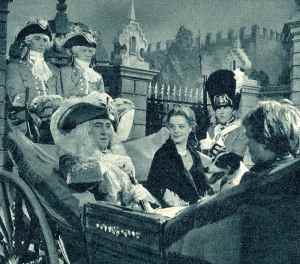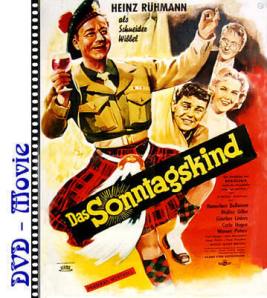You’ve probably read enough about the Scottish referendum in the past week to last you until doomsday. But my take on the matter is somewhat different and involves a kilted Scotsman called Bosty, a bewigged George II and a murdering Viscount. An intriguing prospect, I hope you’ll agree.
There’s been lots of discussion about Britishness in the last weeks, plenty of agreement that it’s important and worth hanging onto, but no consensus about what it means.
Cole Morton writing in the Telegraph on Sunday failed to answer the question in his own headline, “what does it mean to be British now?” commenting only (and fairly obviously) that Britishness is “elusive” and incorporates many types of people and identities. Guardian columnist Madeleine Bunting’s conclusion that Britishness is “by definition a plural identity” is equally vague.
Having read these albeit interesting but somewhat disappointing articles, I was certainly none the wiser. So I turned to my terrible 1950s German novels and even worse 1950s German films to see what insight they could offer. After all, I’m studying German depictions of the British, so perhaps they had a clearer idea what Britishness meant, at least in the 1950s, than we do today?
Yet British characters, it seems, were few and far between in post-war German popular culture (which could be problematic for my thesis…). There are plenty of specifically English characters and a couple of Scots, but no sign yet of any Welsh or Irish, and none who are identified as British.
The 1956 comedy film Robinson soll nicht sterben (Robinson shall not die) is a fictional story based on the absurd premise that Daniel Defoe’s famous novel has inspired so many English sailors to abandon their ships and seek out a lonely desert island that the novel has been banned and Defoe is now penniless. Although the film is self-consciously farcical and over embellished, the depictions of a highly ornate, rather ugly English court inhabited by royals and nobles flamboyantly dressed and bewigged would have been relished by German audiences obsessed with what they saw as an English monarchy and English traditions.
Similarly, post-war German novels and films were riddled with remnants of the English nobility, often depicted as eccentric relics, sometimes as lunatics, but always undoubtedly English rather than British. If their Englishness isn’t being commented on directly, it is always present in their perpetual tea-drinking, discussions about the weather and obsession with their own noble status.
Indeed, Viscount Blair of Menseley in a 1957 detective novel is so fanatical about maintaining the prestige of his noble heritage that he murders his wife in order to inherit her fortune. His Englishness is highlighted not only by his Oxford accent and English furniture but by the very bloodline he is desperate to protect.
The English aren’t coming out of this too well so far, are they? That’s for another blog post though…
Then you’ve got your Scotsmen, like Bosty McMillar in the comedy film Das Sonntagskind, a Scottish soldier in occupied Germany after the war. Complete with kilt, bagpipes and whisky and speaking very bad German, he flaunts all the Scottish stereotypes available to German film producers in 1956.
So for German filmmakers and novelists in the 1950s, Britishness wasn’t terribly ripe with possibility. Even now, there’s a fair amount of understandable confusion among the Germans I’ve spoken to about what Britain is, let alone how it relates to Great Britain or the United Kingdom.
So it seems we’re on our own in working out what Britain is about. We’ve had the word since the Romans arrived, so there’s no excuse really.



I’m afraid there is no such thing as “britishness”. I came to know many people from the UK, but to press them all into one category would not do any of them justice. You will also fail if you try to define “Germaness”.
Hi Zyriacus, thanks for reading. I agree – a nation can have some kind of identity without having a character that is shared by all of its citizens. However, in the post-war period (and even today), there was a conscious attempt to pin down what it meant to be German or British and it is that attempt – in the form of popular fiction – that I was trying to address here.